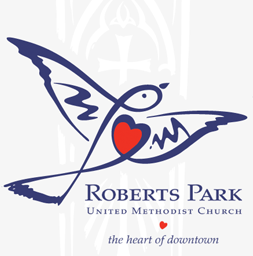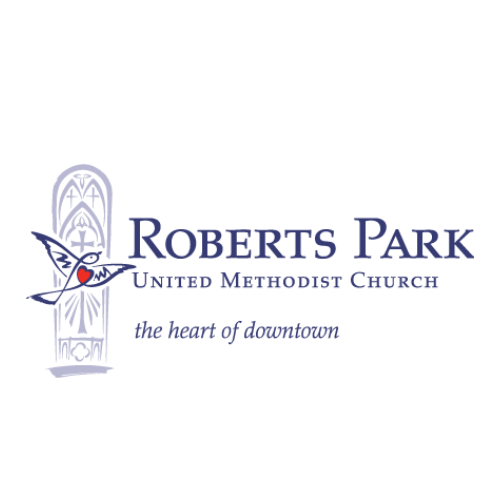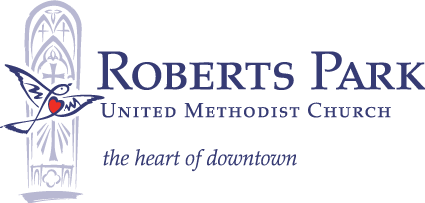Pastor Andrew's Midweek Reflection
I don’t remember exactly how old I was, but I was a very young boy when I contracted German measles. I remember being very ill, so ill in fact, that as my mother was out all day teaching, I was allowed to sleep in my father’s extensive study in the parsonage we lived in. I remember, too, that the doctor would call around and see me as he made his round of house calls that day. He had the little black bag he always brought with him, from which he would produce his stethoscope and thermometer. How things have changed? I am sure there are some circumstances where a doctor may make a house call, but it is far from the norm. Today, we are expected to get ourselves to the ‘immediate care’ or the ‘emergency room’ if it is that serious. If it is a genuine emergency, we may have an ambulance take us to the location where a doctor can examine us. The onus is on the patient to ‘go’ because, quite simply, there aren’t enough doctors who seem willing to ‘come.’ We can sometimes think of God similarly – as one to whom we ‘go,’ the responsibility on us to make the first approach or call. However, if we look closely at the nativity stories in Matthew and Luke or the opening verses of John’s Gospel, we will see a very different picture emerge. Running through them all, like a common thread, is the message that it is God who first comes to us. He came to Zachariah, Mary, Joseph, and then the shepherds out in the fields; the approach was always at his initiative. He came bringing his word of promise, challenge, joy, and hope, offering his love and his gift of new life – and so he continues to come today. Before we know him, before sometimes we are even aware of our need, he draws near, reaching out in welcome and extending his grace. Yes, Christmas calls for a response; Mary had to say yes, Joseph had to understand the angel’s message and agree, and the shepherds left their sheep, but in the end, it is not about us coming to God; it is, above all, about him coming to us. Perhaps this can be your prayer this week? Living God, when I forget you, fail you and wander far from you, keep coming to me by your grace and open my eyes anew to your love. Through Christ my Lord, Amen (Nick Fawcett) May you have a blessed Christmas and a Happy New Year, Shalom to you, my friend, Pastor Andrew
As with all FDA-approved drugs, there have been years of development and rigorous testing before the validation that these medications are acceptable is given. Just this week, there is a study to show that women taking the glucagon-like peptide 1 (GLP1) weight-loss drugs that are injected once a week are now finding they are becoming more resistant to some forms of breast cancer. Thousands of people had to offer themselves as test subjects to gather that vital data. Divided into two groups, one set of test subjects received the newly developed drug, and the other set a placebo with no active ingredients. The active component of weight loss, or any therapeutic drug, sets it apart and makes it effective. There is a parallel here with these words of the prophet Isaiah, Remember the former things of old; for I am God, and there is no other; I am God, and there is no one like me, declaring the end from the beginning and from ancient times, things not yet done, saying, “My purpose shall stand, and I will fulfill my intention,” I have spoken, and I will bring it to pass; I have planned, and I will do it. (Isaiah 46:9-10,11b) The prophet could speak with conviction of the ultimate fulfillment of God's purpose because he knew that when God says he will do something, he does it; his words are always active! There is never any question of God saying one thing, doing another, making a promise, and then forgetting to honor it. He is holy and dependable, a God with whom we can put our trust. That is the truth we celebrate at Advent and Christmas. These are seasons concerned with what God has done - not just what he has promised, but what he achieved! They speak of the God who acted decisively in human history, wonderfully and unmistakably putting his words into practice! God did not just wish the world well and leave it to get on with its affairs. He did not just tell us what we needed to do and then expect us to struggle as best we could. He did not give fine-sounding promises that remained only promises. He revealed love in action, and the word made flesh. That living Word continues to be active today in our lives and our world, and through him, we know indeed that he will accomplish what God has pledged to do! Do you expect God to act in your life? Do you read God's word, believing that it continues to have the power to speak and change lives today? Perhaps this can be our prayer this week: Living God, teach me to trust that you will do everything that you have promised, your word continuing to work in my life and the life of the world until your purpose is fulfilled. Amen. Shalom to you, my friend. Pastor Andrew
No matter how hard I tried, I couldn’t remember being in that place. My brother remembered it; we had been there as small children, but for me, it was as if I had never been there at all. Furthermore, the harder I tried to recall it, the more elusive the memory became! Like many of you, I remember various things, but there are times when memories fade, and we resort to jotting them down on the fridge door or programming our phones to remind us before we forget. Sadly, this phenomenon is too true for Pearl Harbor Remembrance Day. Each year on December 7th, Pearl Harbor survivors, veterans, and visitors from around the world come together to honor and remember the 2,403 service members and civilians killed during the Japanese attack on Pearl Harbor on December 7th, 1941. Additionally, 1,178 people were injured in the attack, which resulted in the permanent sinking of the US Navy battleships Arizona and Utah, and 188 aircraft were destroyed. As the number of survivors declines each year, some argue that Pearl Harbor Remembrance Day is becoming outdated or less significant. Yet, when we look at today’s news, we can see the horror of war all too clearly. Men and women are deployed from this country to serve in conflict zones worldwide. It still amazes me that some individuals, like recent guests of former President Trump, boldly suggest for example, that the Holocaust never happened, thus dismissing the suffering, terror, and anguish endured by millions. The undeniable truth is we cannot afford to forget the past conflicts that have claimed countless lives and left many more maimed and mentally scared. Pearl Harbor Remembrance Day does not glorify war; instead, it serves as a reminder of the cost of peace. It allows us to briefly reflect on the evil and inhumanity that humanity can inflict on one another, as well as the sacrifices made by many to ensure that such tyranny does not prevail. For one day each year, these memories are brought back into our consciousness—lest we forget! The Psalmist reminds us, “We have heard from ourselves, O God; our predecessors have told us the deeds you have performed in their time, how in bygone days you saved us from our enemies” (Psalm 44:1, 7a). It is good to be reminded, even if just once a year, of how much we owe to those who fought for the freedom of our country. I am deeply moved when I hear people in the street, at restaurants, or in airports express their gratitude to uniformed service members, especially when it is accompanied by gestures of appreciation, such as paying for a meal or allowing them to board an aircraft first. We must remember the stories of the past and the sacrifices made for our freedom. Jesus said, “I come that you might have life and have it to the full” (John 10:10), and for that, He was willing to give His life. For some, that cost was the ultimate price. We must never forget and continually seek to learn those lessons, working for peace, standing against evil, and serving without counting the cost. This week, perhaps we can pray: “Forgive me for not remembering as often as I should, for forgetting how fortunate I am to live in freedom and enjoy peace; for forgetting those who suffer from the wounds of battle and those who mourn their loved ones. Speak to me and help me not only to say the words but to truly mean them: We will remember them.” May we strive for a better future today and every day. Shalom to you, my friend Pastor Andrew
We are a week past the election and have just about all of the votes counted, and the candidates elected to the various roles now know what they will be doing next year. Oh, I am sure that the different ‘wins’ and ‘losses’ will still be debated in the coming days, and the politicians from both sides of the aisle will ‘spin’ their stories in the most favorable light to help preserve their self-esteem and offer consolatory words to those around them. With the election result comes a change in the political landscape: a Republican-controlled House, Senate, and White House would imply that it would be easy to pass legislation. The higher-than-expected voter turnout is a testament to the increasing public engagement with the whole political process and, for me, is one of the more encouraging aspects that can be found in the elections. Yet, I can’t help wondering how many people standing in line to vote, in some places for hours, gave a thought to the enormous privilege they have in exercising their constitutional duty. Last Monday was Veterans Day, when those who fought, those who were wounded, and those who paid the ultimate sacrifice are remembered for their service to their country and honored. It would be foolish to think that everyone who volunteered or was drafted into service for their country went willingly to war to fight for freedom and believed they were upholding all the rights that being a ‘free nation’ offered. Yet one of the primary outcomes of successful military campaigns is the preservation of a democratic process of government that provides those eligible with the right to vote and so have a say in who governs the country. Thousands literally died so that we might be able to help shape the world we live in through the government we elect. Do we lose sight of that fact when we enter the voting booth? In Samuel 23:15-17 we read the story of King David camped outside Bethlehem. David made a comment expressing the wish that the soldiers who were besieging Bethlehem would bring him water to drink from the well there (from which David himself apparently used to drink). David was speaking these words wistfully or rhetorically. However, David's three "mighty men" took the king's words as an order and, despite the dangers involved, fought their way through the Philistines, obtained water from the well at Bethlehem, and brought it back to David. When David knew what they had done and why they had done it, he realized that if he were to drink the water, it would appear that he placed a higher value on it than on the men who had risked their lives to obtain it. He, therefore, refused to drink it but "poured it out to the Lord." In part, it was a recognition of the protection that the three men had been able to get the water and bring it back, but mainly, it was a recognition of the sacrifice made for him; it was just too precious to drink. We also, like David, would do well to remember the enormity of sacrifice made by our veterans and service men and women today so that we can stand in line and vote. I also believe that if our politicians behaved more with David’s recognition of the sacrifices made, the country and the world would be better. Amen Shalom to you, my friend. Pastor Andrew
As I write this piece, we have had the Presidential Election. It was a tighter race than pollsters and pundits tried to convince us it would be. We still await the final call on a few counties and states, yet the electoral college votes are such that Donald Trump looks set to be the next President of the United States of America. With that said, the nation will continue to face enormous challenges. How do we turn to God for the strength and hope we need daily? I suggest three steps to reframing obstacles as opportunities and challenges as invitations to hope. Step One: Look Back God advises us: “Take care lest you forget the LORD, who brought you out of the land of Egypt, out of the house of slavery” ( Deuteronomy 6:12 ). The 1918 flu pandemic killed more than 675,000 Americans in a nation of 103 million. In a country of 328 million, this would equate to more than 2.1 million deaths, nearly ten times the current number. God sustained the nation through World War I, the pandemic, the Great Depression, World War II, and all that followed. Looking back at what God has done, we can find the hope to trust God for what he will do. Step Two: Look Up God encourages us: “Fear not, for I am with you; be not dismayed, for I am your God; I will strengthen you, I will help you, I will uphold you with my righteous right hand” (Isaiah 41:10). Paul added : “My God will supply every need of yours according to his riches in glory in Christ Jesus” (Philippians 4:19). Thus, we can claim 2 Corinthians 9:8: “ God is able to make all grace abound to you, so that having all sufficiency in all things at all times, you may abound in every good work.” When we look to who God is, we find the hope to trust God for all that we need. Step Three: Look Around Our Lord’s call is clear: “As each has received a gift, use it to serve one another, as good stewards of God’s varied grace” (1 Peter 4:10). In ‘The Weight of Glory,’ C. S. Lewis wrote: “ I have received no assurance that anything we can do will eradicate suffering. I think the best results are obtained by people who work quietly away at limited objectives, such as the abolition of the slave trade, prison reform, factory acts, or tuberculosis, not by those who think they can achieve universal justice or health or peace. I think the art of life consists in tackling each immediate evil as well as we can.” Looking back at what God has done, we can see the help that was provided. We can see God's heart when we look at who God is. Then, when we look around, we can extend God’s hands to a hurting world. In that way, we can bring about God’s will on earth as it is in heaven. Shalom to you, my friend. Pastor Andrew
Last Sunday, I shared some thoughts on Asking Christian Questions about Immigration. If you were not able to join us on Sunday, I encourage you to watch the service on YouTube. You can see it HERE Immigration is a complex and multifaceted issue affecting millions of people worldwide. It often stirs intense debate and elicits a wide range of responses. From a Christian standpoint, the response to immigration should be guided by principles found in Biblical teachings, which emphasize compassion, hospitality, and justice. The Bible contains numerous references to the treatment of foreigners and strangers, urging believers to extend kindness and support to those who are outside their native land. For instance, Leviticus 19:34 states, "The foreigner residing among you must be treated as your native-born. Love them as yourself, for you were foreigners in Egypt. I am the LORD your God." This passage highlights the importance of empathy and the remembrance of one's migration history. Furthermore, the New Testament continues this theme of acceptance and love for the stranger. In Matthew 25:35, Jesus says, "For I was hungry, and you gave me something to eat, I was thirsty, and you gave me something to drink, I was a stranger, and you invited me in." This underscores the call for Christians to see Christ in every person and to act accordingly with generosity and inclusion. I believe that the Christian response to immigration also involves advocating for policies that protect the dignity and rights of immigrants. This means supporting efforts that provide aid to refugees, fighting against unjust laws and practices, and working towards a fair and humane immigration system. Many Christian organizations and churches actively participate in such advocacy, guided by the belief that every person is made in the image of God and deserves to be treated with respect and compassion. At the same time, Christians are also called to respect the rule of law and to seek solutions that balance compassion with order. This can involve engaging in constructive dialogue with policymakers, supporting legal pathways for immigration, and contributing to immigrants' social and economic integration into society. So for me, the Christian response to immigration is rooted in the Biblical call to love and serve one's neighbor, regardless of their nationality or background. It seeks to uphold the values of compassion, hospitality, and justice while also recognizing the complexities of the issue. As communities and nations grapple with immigration, the Christian perspective offers a framework for addressing this challenge with a spirit of grace and solidarity. Shalom to you, my friend. Pastor Andrew



